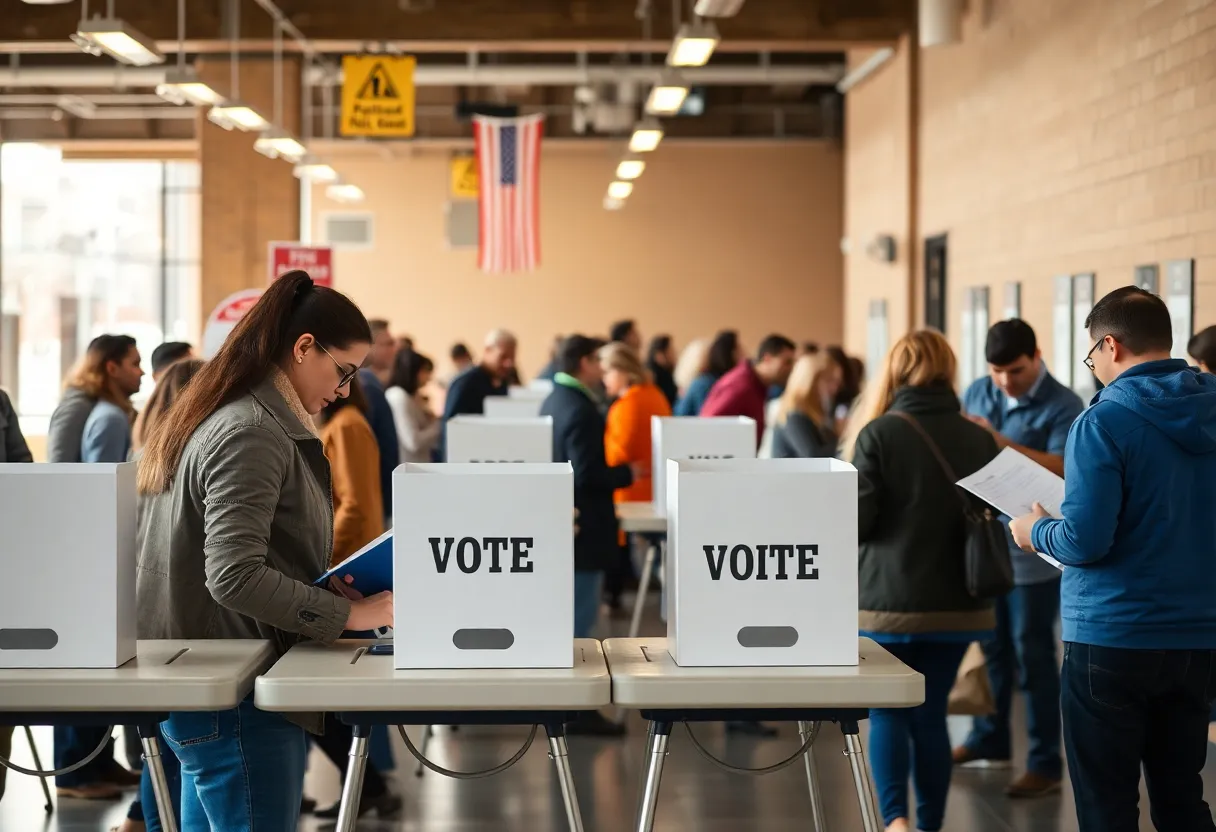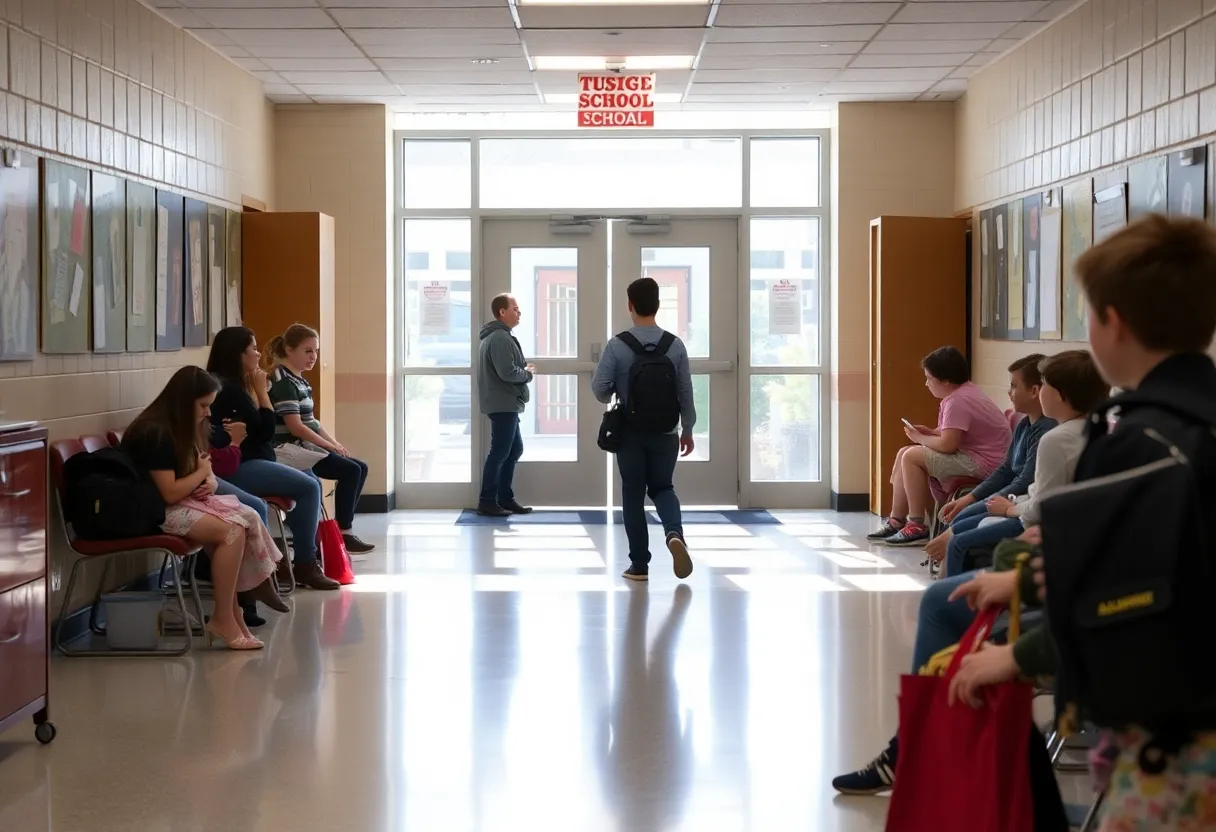News Summary
The recent Dallas municipal elections were marked by alarmingly low voter turnout, with only 8.4% of registered voters participating. Factors contributing to this trend include voter fatigue and a lack of effective outreach. Proposed legislative changes aim to shift local elections to November to improve engagement. In comparison, Harris County experienced nearly double the turnout, raising further concerns about civic participation in Dallas. The new Dallas City Council must address significant issues alongside these electoral challenges.
Dallas municipal elections witnessed a concerningly low voter turnout, with only 8.4% of the 1.4 million registered voters participating. This trend is particularly alarming, as only slightly more than 70,000 residents cast their votes during the early voting period, while a mere 47,300 individuals turned out on election day. This event coincided with popular occasions, including Kentucky Derby parties and early Cinco de Mayo celebrations, further complicating participation rates.
Dallas Mayor Eric Johnson was not on the ballot for re-election this cycle, a situation believed to contribute to the diminished voter engagement. Local elections hold great significance for residents, affecting essential aspects of daily life such as public safety, trash pickup, tax rates, and business attraction. Despite this, many Dallas residents appeared indifferent, a sentiment reflected in the low turnout. Factors such as voter fatigue, a lack of effective outreach by candidates, and general apathy were identified as primary reasons behind this shortfall in civic participation.
Over the past 14 months, Dallas County voters have been summoned to the polls at least seven times, which may have led to the onset of voter fatigue. This chronic participation in elections has raised concerns among local officials about the need for reform. State Senator Royce West articulated the necessity to decrease the number of elections and ensure that they are more meaningful for the electorate. In response, West and Senator Nathan Johnson have proposed a bill that would transition Dallas city council elections from May to November in odd-numbered years. This legislative shift aims to enhance voter turnout by aligning local elections with the more familiar and heavily attended November elections.
For context, Harris County saw nearly double the turnout in its municipal elections, achieving approximately 17.4% participation during the November 2023 joint elections. The Texas Senate has shown support for similar initiatives statewide, promoting legislation that would move municipal elections to November across Texas. Specifically, Senator Bryan Hughes has introduced a bill that would eliminate May elections except for runoffs and emergencies, while also granting cities the choice to hold elections in odd or even years.
Despite these legislative proposals, concerns remain among Dallas officials about scheduling elections in November during even years when high-profile partisan elections take place. The final decision on whether to move elections will ultimately lie with the Dallas City Council, pending any action from the state legislature.
Strong bipartisan support has emerged for the shift to November elections. Residents previously voiced their approval to change election timing to November in odd-numbered years. Advocates of this change argue that consolidating elections and creating better incentives for voter engagement can significantly boost turnout rates.
One of the challenges faced by candidates in local races is the lack of resources necessary to campaign as effectively as their partisan counterparts. This disparity can result in lesser awareness of the local elections, contributing to lower turnout rates.
As the new Dallas City Council settles in, it will be tasked with addressing several pressing issues. These include increasing police staffing for enhanced public safety, reforming the city’s pension system, redeveloping the convention center, and planning for the upcoming 2026 FIFA World Cup. Unofficial results from the recent elections indicate that incumbents are leading or have successfully won re-election in most of the contested Dallas City Council races, reflecting a possibly stable continuity within the council despite the low overall participation.
Deeper Dive: News & Info About This Topic
HERE Resources
Dallas Elects New City Council Representatives
Texas School Districts Propose Major Bond Packages for Voter Approval
Dallas Faces Potential Changes to Governmental Immunity
Dallas Early Voting Sparks Controversy in City Council Race
Dallas City Council Faces Fallout from Stemmons Freeway Sale
Dallas Elections: New PACs Influence City Council Races
Thousands of North Texans Kick Off Early Voting
Additional Resources
- Dallas News
- NBC DFW
- Dallas Observer
- WFAA
- Star Local Media
- Wikipedia: Voter Turnout
- Google Search: Dallas City Council Election Results
- Google Scholar: Voter Engagement Texas
- Encyclopedia Britannica: Election
- Google News: Dallas Elections 2025

Author: STAFF HERE DALLAS WRITER
The DALLAS STAFF WRITER represents the experienced team at HEREDallas.com, your go-to source for actionable local news and information in Dallas, Dallas County, and beyond. Specializing in "news you can use," we cover essential topics like product reviews for personal and business needs, local business directories, politics, real estate trends, neighborhood insights, and state news affecting the area—with deep expertise drawn from years of dedicated reporting and strong community input, including local press releases and business updates. We deliver top reporting on high-value events such as the State Fair of Texas, Deep Ellum Arts Festival, and Dallas International Film Festival. Our coverage extends to key organizations like the Dallas Regional Chamber and United Way of Metropolitan Dallas, plus leading businesses in telecommunications, aviation, and semiconductors that power the local economy such as AT&T, Southwest Airlines, and Texas Instruments. As part of the broader HERE network, including HEREAustinTX.com, HERECollegeStation.com, HEREHouston.com, and HERESanAntonio.com, we provide comprehensive, credible insights into Texas's dynamic landscape.




